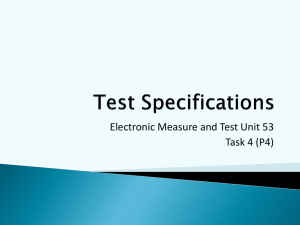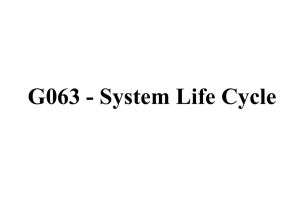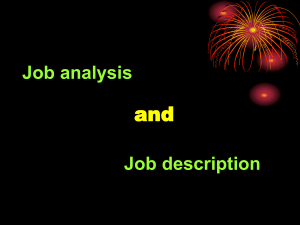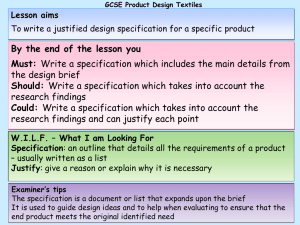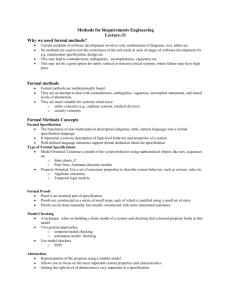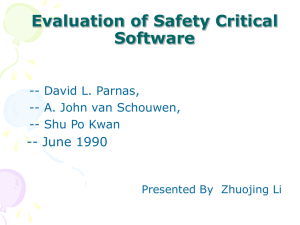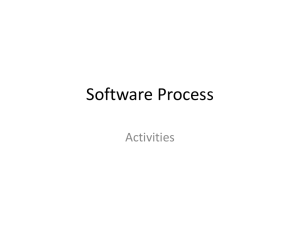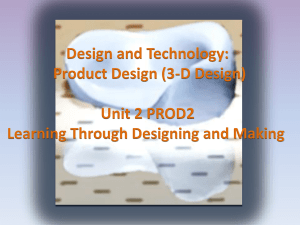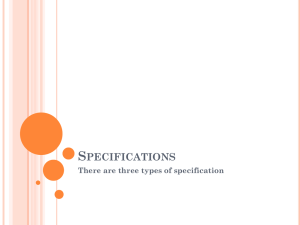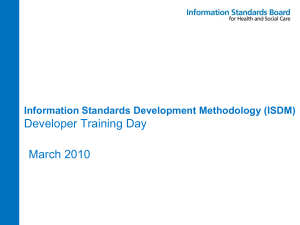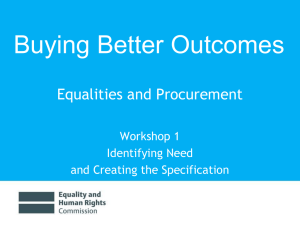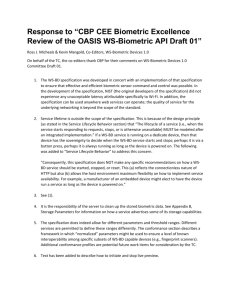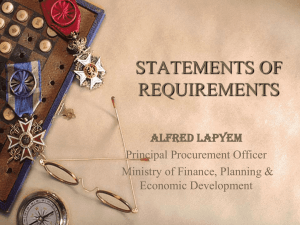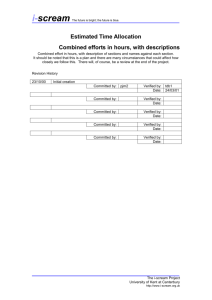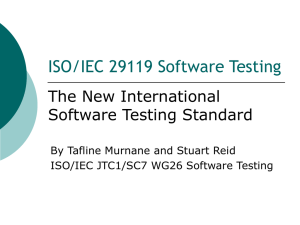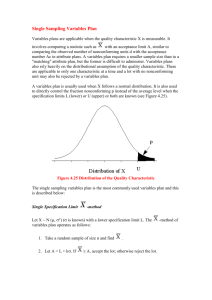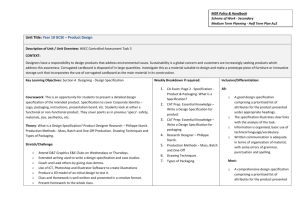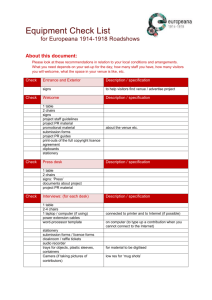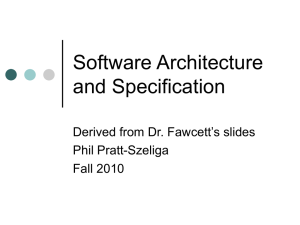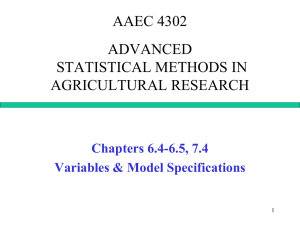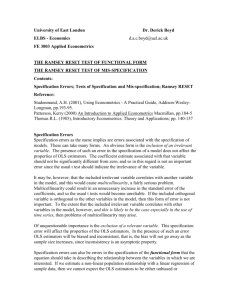Project Management - UK Versity Online
advertisement
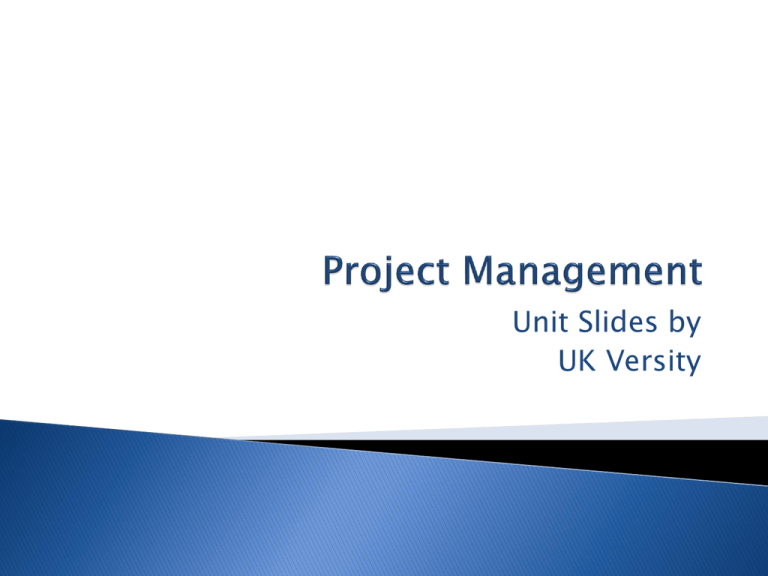
Unit Slides by UK Versity Unit aims: This unit aims to help the learner with an opportunity to develop their project management and research skills by developing a project where they plan and implement a new product, service or process Learning outcomes: This unit has five learning outcomes. The candidate will: 1. 2. Be able to plan for the launch of a project to implement a new product, service or process 3. Be able to implement a project 4. Be able to evaluate the outcomes of a project 5. Be able to present the outcomes of a project Be able to develop a project specification. Factors that contribute to the process of project selection (Outcome 1.1) Development: defining the product, service or process, research methods of evaluating feasibility of project initial critical analysis of the outline specification selection of project option initiating a project logbook/diary estimating cost and resource implications Factors that contribute to the process of project selection (Outcome 1.1) Development: identifying goals and limitation value of project rationale for selection agree roles and allocated responsibilities developing a business case case justification Factors that contribute to the process of project selection (Outcome 1.1 Development: primary and secondary sources official sources tacit knowledge political dimensions environmental scanning market research market segmentation Factors that contribute to the process of project selection (Outcome 1.1) Specification: Developing a list of requirements relevant to project spec eg cost, timescale, scale of operation, standards, legislation, ethics, sustainability, quality, fitness for purpose, business data) Factors that contribute to the process of project selection (Outcome 1.1 Specification resource implications project life cycle added value of product service or process market and customer expectations profit margins and vulnerability Specification market analysis benchmarking, stakeholder analysis scoping process informal contacts and networking, relationship to corporate strategy and planning sustainability, market intelligence system(MIS Develop outline project specification for the implementation of a new product, service or process (Outcome 1.2) Project management: Principles role of the project manager eg management of change, understanding of project management system elements and their integration, Develop outline project specification for the implementation of a new product, service or process (Outcome 1.2) Project management management of multiple projects, project environment and the impact of external influence on projects identification of the major project phases(initiate/plan/execute/monitorcontrol/evaluate-close) and why they are required understanding of the work in each phase the nature of work in the lifecycle of project in various industries Develop outline project specification for the implementation of a new product, service or process (Outcome 1.2) Project management management of multiple projects project environment and the impact of external influence on projects, identification of the major project phases(initiate/plan/execute/monitorcontrol/evaluate-close) and why they are required understanding of the work in each phase, the nature of work in the lifecycle of project in various industries Develop outline project specification for the implementation of a new product, service or process (Outcome 1.2) Success/failure criteria: Need to meet operational, time and cost criteria, measure success eg. Develop the project scope, project breakdown structure(PBS), work breakdown structure(WBS), project execution strategy and the role of the project team Develop outline project specification for the implementation of a new product, service or process (Outcome 1.2) Success/failure criteria consideration of investment appraisal eg use of discount cash flow(DCF) and net present value(NPV), benefit analysis and viability of project, determine success/failure criteria preparation of project definition report acceptance test requirements for termination eg. Audit trials, punch list, close-out reports and post-project appraisals, comparison of project outcome with business objectives Develop outline project specification for the implementation of a new product, service or process (Outcome 1.2) Project management system: Procedure and processes knowledge of project information support(IS) systems how to integrate human and material resources for success How to produce a project plan for an agreed product Procedures: planning and monitoring methods operating methods lines of communication risk analysis structure of groups and collaborative working targets and aims How to produce a project plan for an agreed product Project plan production of a plan for the project including timescales deliverables, milestones, quality assurance systems and quality plans monitoring progress Resources: Economy efficiency and effectiveness sources and evaluation of training and development workforce planning contingency factors Cost all resources required for implementing a project (Outcome2.3) Cost cost dimensions eg labour, training and development, materials, supplies, equipment hire, accommodation or space, delivery, accessing funds, overheads, administration, budgeting and cash flow, cost margins; cost-benefit analysis Cost all resources required for implementing a project (Outcome2.3) Planning: identify and select product service or process scope and feasibility agreeing the process plan timeline; action plan timetable and procedure task dates targets; milestones; review dates; monitoring/reviewing process; strategy Cost all resources required for implementing a project (Outcome2.3) Methodology: research eg library, internet, sector data sources pure and applied research, Developmental longitudinal, interviews, questionnaires survey, case study; research and development; concepts and theories; terminology validity and reliability Agree timescale for the management and implementation of a project(Outcome 2.4) Organisational structure: functional, project and matrix structures eg consideration of cultural and environmental influences; organisational evolution during the project lifecycle job descriptions and key roles eg the project sponsor, champion, manager, integrators; other participants eg the project owner, user, supporters, stakeholders Agree timescale for the management and implementation of a project(Outcome 2.4) Control and coordination: the need for monitoring and control eg preparation of project plans, planning, scheduling and resourcing techniques use of work breakdown structure to develop monitoring and control systems monitoring performance and progress measurement against established targets and plans project reporting; change control procedures Agree timescale for the management and implementation of a project(Outcome 2.4) Leadership requirements: team roles, motivation and the need for teambuilding project leadership styles and attributes delegation of work and responsibility techniques for dealing with conflict negotiation skills Agree timescale for the management and implementation of a project(Outcome 2.4) Human resources and requirements: calculation, specification and optimisation of human resource requirements job descriptions
